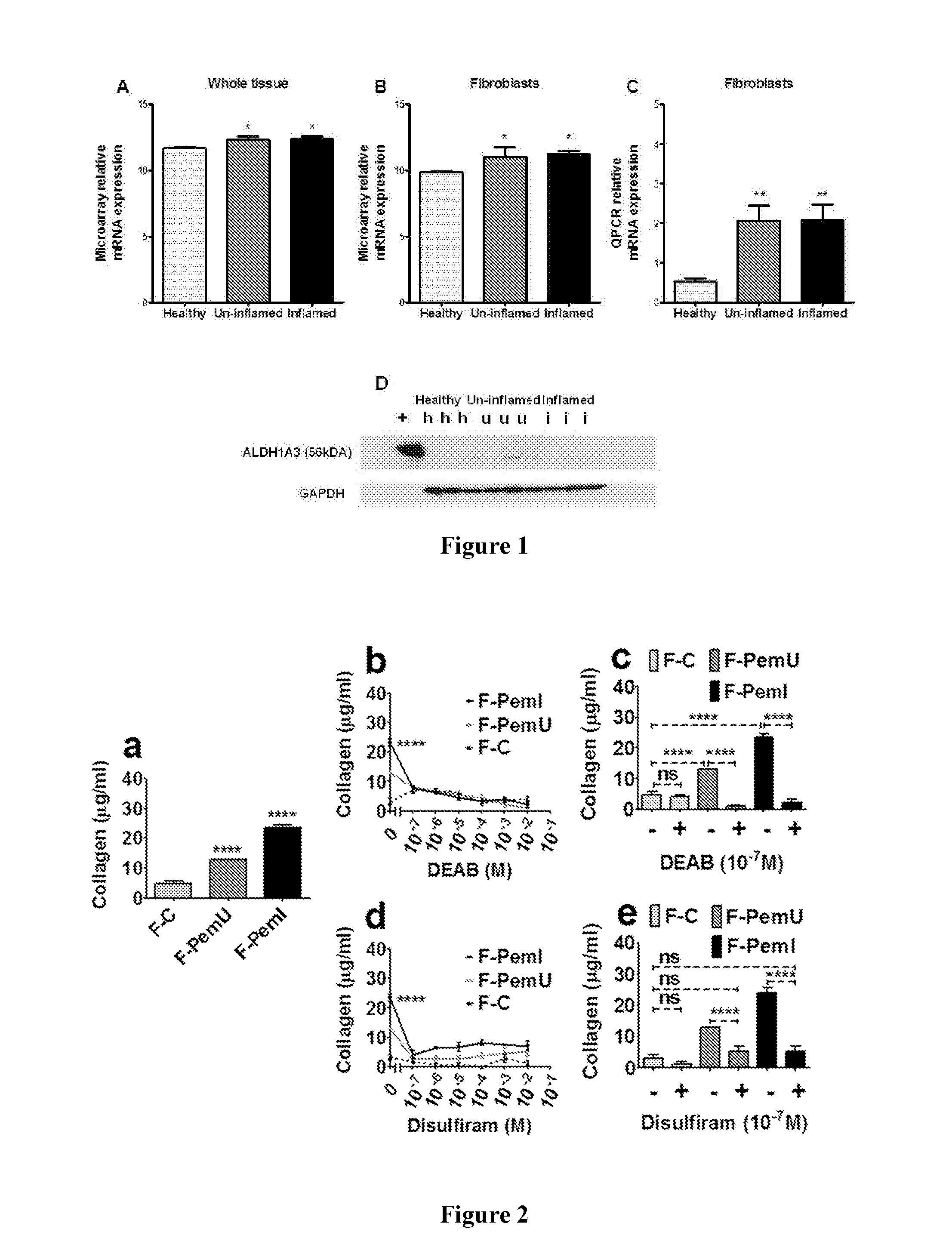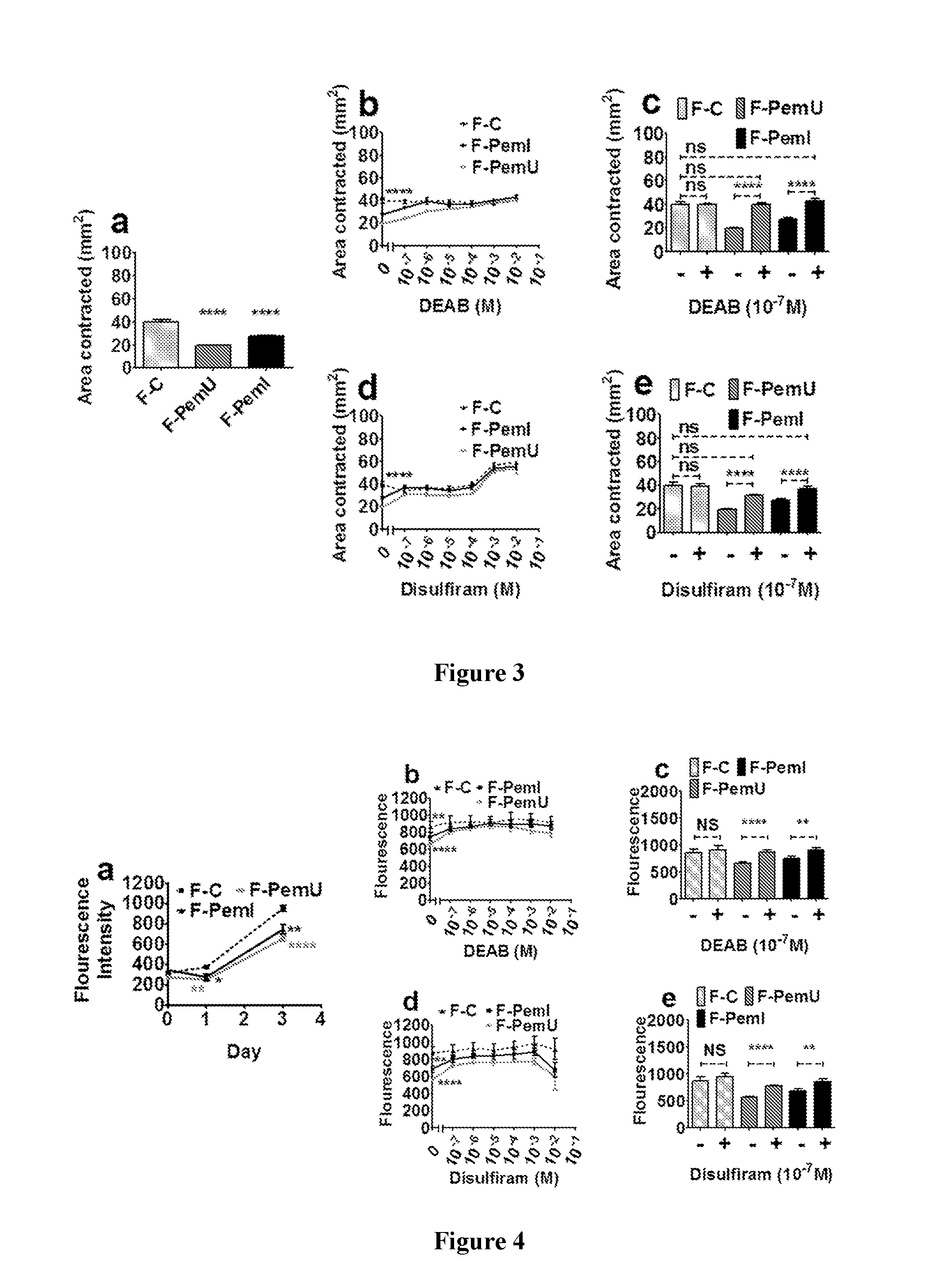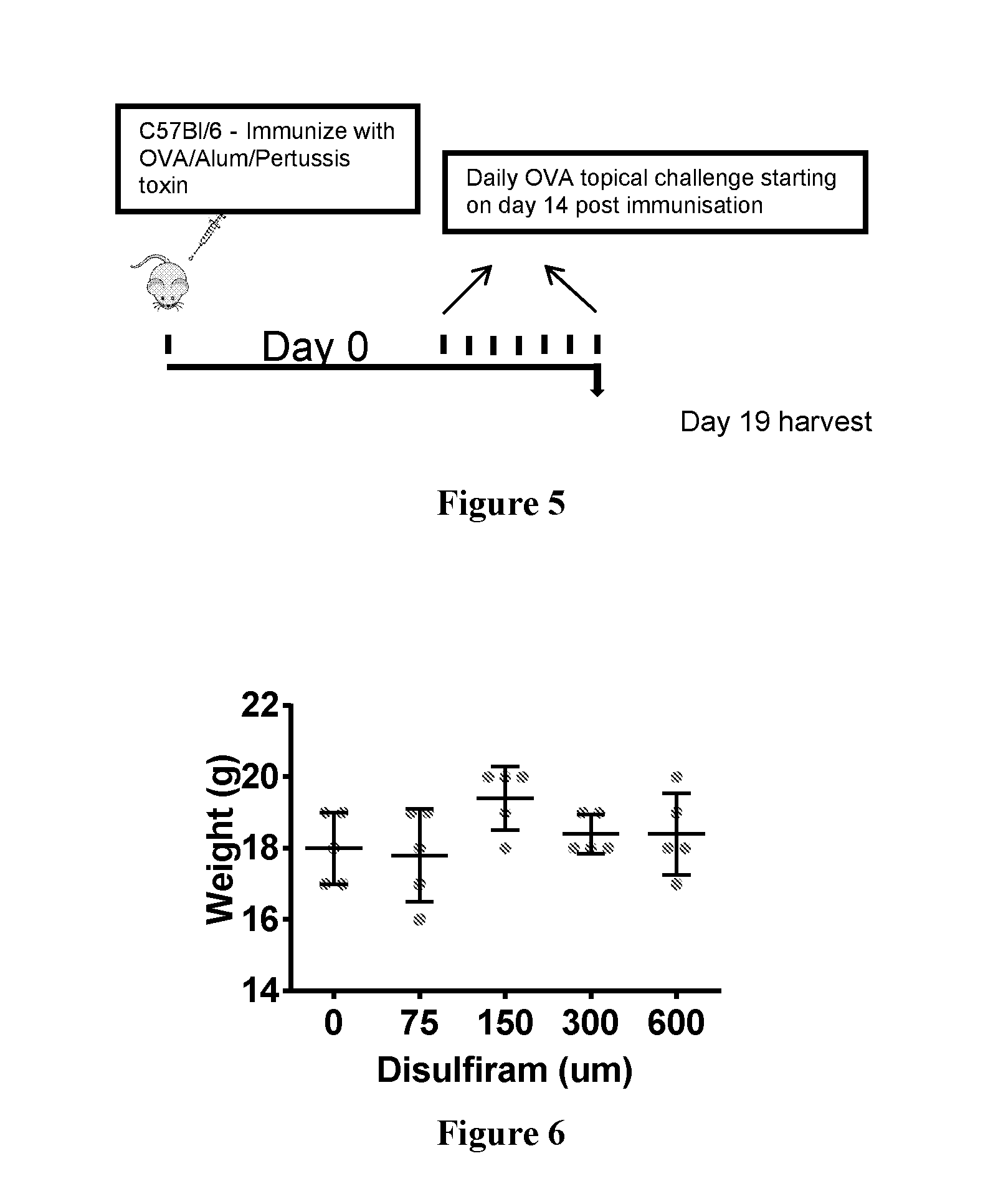Treatment of Fibrosis
- Summary
- Abstract
- Description
- Claims
- Application Information
AI Technical Summary
Benefits of technology
Problems solved by technology
Method used
Image
Examples
example 1
ALDH1A3 is Up Regulated in OcMMP
[0067]A genome wide microarray was carried out on OcMMP whole conjunctival tissue from patients with inflammation after treatment, from patients with no inflammation after treatment and from healthy patients, and with primary conjunctival fibroblasts explanted from these tissues. The results are depicted in FIGS. 1A and 1B. Q-PCR (see FIG. 1C) and western blot analysis (see FIG. 1D) confirmed increased expression of ALDH1A3.
example 2
ALDH1A3 Exacerbates Matrix Production
[0068]To investigate whether there was differential matrix production in OcMMP, primary conjunctival fibroblasts explanted from conjunctival tissue samples from OcMMP patients with (F-PemI) and without (F-PemU) and control (F-C) patients were analysed for their matrix production and secretion (see FIG. 2a). F-PemI and F-PemU fibroblasts exhibited significantly higher collagen production compared to F-C fibroblasts. The collagen production profiles of F-PemI and F-PemU fibroblasts did not significantly differ from one another.
[0069]To ascertain whether this enhanced collagen production was mediated by ALDH1A3, the collagen production profiles of F-PemI, F-PemU and F-C fibroblasts were assessed after ALDH inhibition with DEAB or disulfiram (see FIGS. 2b to 2e, where “+” and “−” indicate the presence or absence of DEAB / disulfiram respectively). Increasing concentrations of DEAB and disulfiram resulted in a dose dependent and significant decrease in ...
example 3
ALDH1A3 Impairs Matrix Organisation
[0070]Next the ability of F-PemI and F-PemU fibroblasts to organise matrix through matrix contraction was investigated. F-PemI and F-PemU fibroblasts showed a significantly decreased capacity to contract matrix in comparison to F-C fibroblasts (see FIG. 3a). This diminished contractile profile was similar in F-PemI and F-PemU fibroblasts.
[0071]To find out whether ALDH1A3 was also contributing to this phenotypic contractility we looked at the contractile profiles of F-PemI, F-PemU and F-C fibroblasts after DEAB or disulfiram ALDH inhibition. Both DEAB and disulfiram addition increased the contractility of F-PemI and F-PemU fibroblasts in a dose dependent manner (see FIGS. 3b to 3E, where “+” and “−” indicate the presence or absence of DEAB / disulfiram respectively). The lowest concentration of 10−7M DEAB and disulfiram addition resulted in F-PemI and F-PemU fibroblasts exhibiting control cell levels of contraction. DEAB and disulfiram addition did no...
PUM
 Login to View More
Login to View More Abstract
Description
Claims
Application Information
 Login to View More
Login to View More - R&D
- Intellectual Property
- Life Sciences
- Materials
- Tech Scout
- Unparalleled Data Quality
- Higher Quality Content
- 60% Fewer Hallucinations
Browse by: Latest US Patents, China's latest patents, Technical Efficacy Thesaurus, Application Domain, Technology Topic, Popular Technical Reports.
© 2025 PatSnap. All rights reserved.Legal|Privacy policy|Modern Slavery Act Transparency Statement|Sitemap|About US| Contact US: help@patsnap.com



